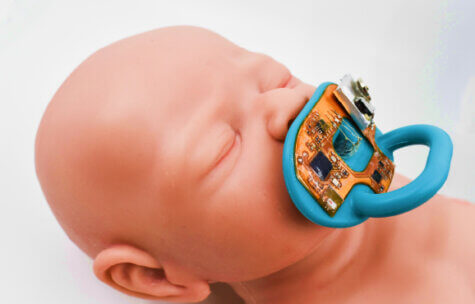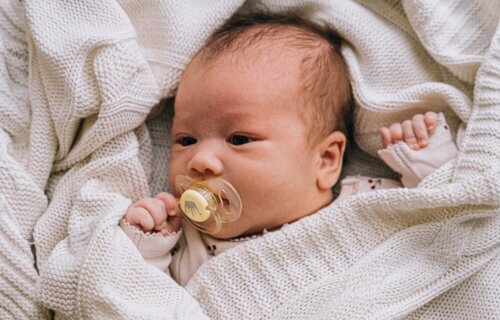VANCOUVER, Wash. — Scientists have developed a wireless, bioelectronic pacifier for newborn babies. The idea of a baby using a high-tech device may leave some shaking their heads, but these “smart pacifiers” aren’t for downloading apps or scrolling through social media.
The team at Washington State University say their invention can monitor the health of babies born prematurely and placed in Newborn Intensive Care Units (NICUs) non-invasively. In other words, newborn babies won’t have to undergo twice-daily blood draws to measure their electrolyte levels. Their smart pacifier will do all of that automatically as they use it.
The device can measure an infant’s sodium and potassium ion levels, for instance. These measurements tell doctors if a baby is dehydrated.
The smart pacifier was tested on a group of infants in a real-life hospital setting. Sure enough, the ensuing results were comparable to health insights gained via normal blood draws.
“We know that premature babies have a better chance of survival if they get a high quality of care in the first month of birth,” says co-corresponding study author Jong-Hoon Kim, associate professor at the WSU School of Engineering and Computer Science, in a university release. “Normally, in a hospital environment, they draw blood from the baby twice a day, so they just get two data points. This device is a non-invasive way to provide real-time monitoring of the electrolyte concentration of babies.”

Affordable NICU care without all the wires?
Having blood drawn can be painful and stressful for a baby, not to mention anxiety-inducing for mom and dad. Moreover, a twice-daily approach to blood drawing (once in the morning, once at night) results in major health information gaps. While other experimental ways of monitoring infants’ electrolytes via saliva have been developed, most of these approaches involve bulky machinery.
Researchers started with nothing more than a normal, commercially available pacifier and went on to create a system for sampling baby saliva via microfluidic channels. Whenever the smart pacifier is in a baby’s mouth, saliva is naturally attracted to these channels. Thus, the pacifier doesn’t need a pumping system of any kind.
Each channel contains small sensors that measure sodium and potassium ion concentrations in saliva. That health data is eventually sent wirelessly via Bluetooth to the child’s doctor.
Moving forward, study authors want to ensure the pacifier’s components are more affordable and always recyclable. From there, larger trials will be held to confirm its effectiveness. NICU treatments are disruptive and upsetting for parents and newborns. Ultimately, researchers want to help make NICUs more comfortable for their tiny patients and their families.
“You often see NICU pictures where babies are hooked up to a bunch of wires to check their health conditions such as their heart rate, the respiratory rate, body temperature, and blood pressure,” Prof. Kim concludes. “We want to get rid of those wires.”
The study is published in the journal Biosensors and Bioelectronics.

I could see where this style monitoring could allow a baby to go home sooner, when there’s no more need for the blood draws.